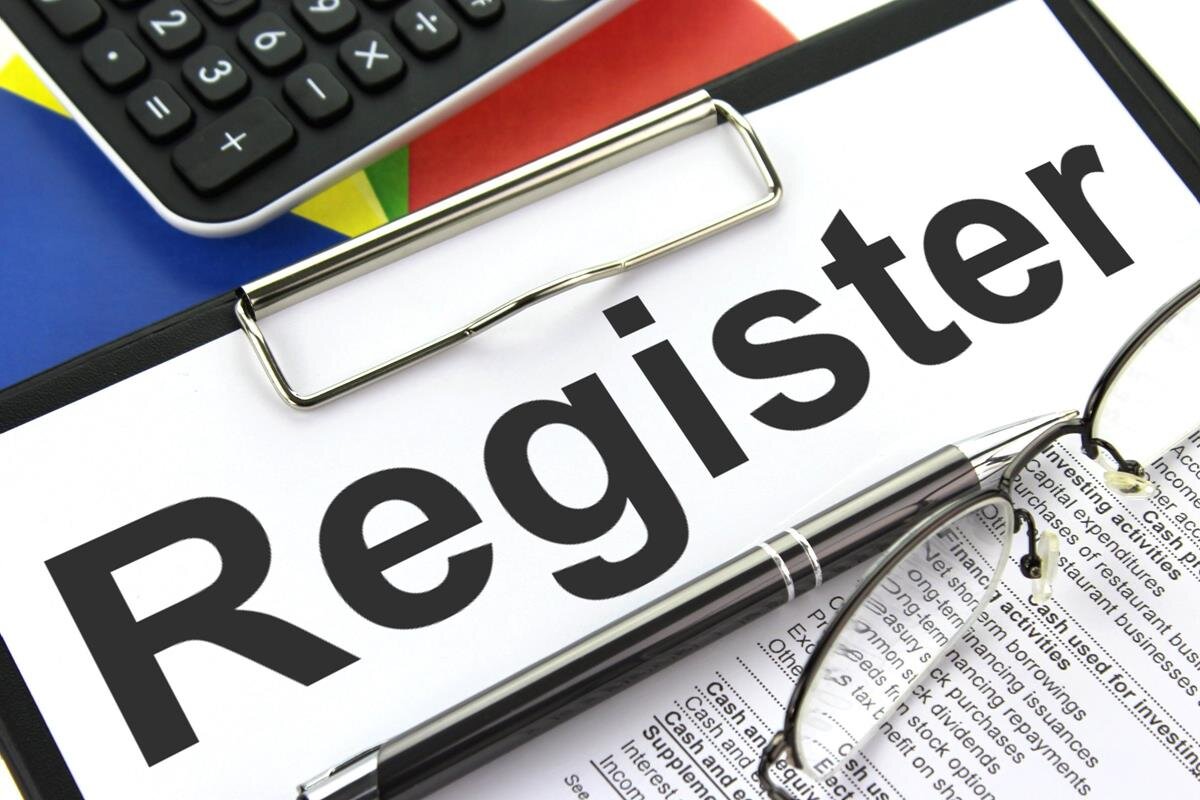Explore Small Business Finance Topics
Discover our most popular topics for Canadian solopreneurs and small business owners. From income tax and GST/HST to QuickBooks tutorials and managing your business finances, these guides are designed to help you move from financial uncertainty to financial confidence.
Click on any topic and scroll down to see related articles.
📑Canadian Income Tax
Guidance on filing and planning your Canadian taxes, from T1 and T2 returns to instalments
📊Managing Business Finances
From cash flow to pricing and metrics — learn to manage your business finances with confidence.
🏢 Canadian Business Structure
Should you incorporate? Stay informed on sole proprietorships, corporations, and registrations.
💰 GST/HST & QST
Understand how to register, file, and maximize input tax credits while avoiding common mistakes.
🧾 Guides and Tutorials
Practical accounting processes like reconciliations, journal entries, and reporting.
📝 Deductions & Expenses
Learn which expenses are CRA deductible and how to track them for maximum tax savings.
Quebec Taxes & Business
QST, Revenu Québec filings, Quebec payroll, and provincial rules every entrepreneur should know.
👤 Paying Yourself
Salary vs dividends, management fees, and how to pay yourself from your corporation or small business.
💻 QuickBooks Online & Tools
Tutorials, guides and time-saving tips for using QuickBooks Online effectively.
🏦 Money & Personal Finance
Personal finance strategies for entrepreneurs, from RRSPs to saving for taxes.

Is the Quick Method of Reporting GST/HST & QST the Right Choice for your Small Business
This post explains how the GST/HST and QST Quick Method works for Canadian self-employed individuals and small businesses, who it’s best suited for, and how to calculate whether it will save you time or money.

CPP for Self Employed Business Owners, Explained.
When you are an employee, your employer is responsible for withholding and remitting payroll deductions, including income tax and contributions to the Canada Pension Plan (CPP) or, in Quebec, the Quebec Pension Plan (QPP). Employers are also required to contribute an amount equal to the employee’s CPP or QPP contribution.
For self-employed individuals, there is no employer to withhold or contribute on their behalf. This resource explains how CPP/QPP contributions work for self-employed business owners, how contributions are calculated, when they are paid, and how they are reported on a personal tax return.

Guidance on Registering for Payroll and Remitting Source Deductions
There comes a time for many small business owners when they decide that they need to hire employees. This is usually an excellent sign as it means a) the business is growing and b) the small business owner has learned to delegate. It also means that additional paperwork needs to be filled out and additional taxes need to be paid. The simplest option when deciding to augment your workforce is to have the new worker invoice the business, based on hours worked or some other formula. Unfortunately, there are very specific rules as to who qualifies as a self employed contractor. Essentially, if your have someone that works full time, has little flexibility with respect to the hours that they work and you provide the tools such as a desk/office, computer etc, then there is a good chance that the tax authorities will classify them as an employee. In this case, where your worker is clearly an employee, you must register for payroll, pay them a salary and submit regular, periodic payroll reports and payments to the Canada Revenue Agency (CRA). As usual, if you live in Quebec, you must submit to Revenue Quebec (MRQ) as well.

Should you register for GST/HST and QST and What it Means to Be Zero Rated
When starting your new Canadian small business or launching into self employment, it is essential to determine whether you are required to register for GST/HST (and QST if you have a started a business in Quebec). The simple answer is that if you anticipate that your annual gross revenues (total sales) are going to exceed $30,000 and your products or services do not qualify as Exempt or Zero rated (explained below) , then you are required to register for GST/HST and collect sales taxes from your Canadian customers and clients.
The $30,000 limit applies to the last 4 quarters of revenues. If you decide not to register for sales tax upon the inception of your business/self employment, then you must monitor your sales revenues over a rolling 4 quarter period and register once you get close to this amount.

How to Use Online Banking to File and Pay Your Business Sales Tax, Payroll DAS and Corporate Tax
The major Canadian banks including RBC,CIBC, TD, BMO and Scotiabank as well as some regional banks such Caisse Desjardins Access D’Affaires conveniently have business tax filings service which replicate the forms that have to be submitted to the government for:
sales tax (GST/HST and QST),
Payroll tax (deductions at source payable to Revenue Canada and Revenue Quebec) and
corporate taxes payable to Revenue Canada (CRA) and Revenue Quebec (RQ).
Business tax instalment payments (including GST-QST instalments)
This means that instead of entering the data on the forms that are available via my business account at CRA and RQ and then going to your bank to make payment, either online or via mail, it can all be done at one time through one form that serves as both tax filing and payment.

Why you should register for CRA and RQ My Business Account (and how to do it)
With all data moving to the cloud these days and ubiquitous online access to banking, customer and supplier portals, it makes sense that Revenue Canada (CRA) and Revenue Quebec (RQ) have followed suit. Considerable resources have been spent by the revenue agencies on developing their online portals and encouraging both individual taxpayers and businesses to move the majority of their tax related interactions online (almost every accountant conference has an appearance by a CRA representative talking about the improvements to their online portal and imploring accountants to convince their clients to make the switch). The upfront investment has resulted in significant cost savings for CRA/RQ (postage costs alone have dropped dramatically) while improving accuracy and perhaps most importantly increasing the effectiveness of tax collection efforts. CRA personnel have been able to move away from verifying calculations and manually reviewing tax returns to more value added analysis which has allowed them to identify tax miscreants with higher accuracy.
For both the individual taxpayer and small business owner there are numerous benefits to registering online:

How to Pay Dividends: Completing the T5 Slip and Summary
If you are the owner of a Canadian corporation, you can choose to pay yourself (and other shareholders) dividends instead of a salary. Alternatively, some shareholders also take dividends in addition to a salary depending on their tax planning strategy. If you do decide to pay yourself dividends, it is important to ensure that you prepare the proper documentation for Revenue Canada (CRA) and if you live in Quebec, Revenue Quebec (MRQ) since this must be reported as investment income on your personal tax return in the calendar year in which the dividends are paid. If you are paying dividends to a Canadian shareholder, you must issue a T5 slip while non resident shareholders receive an NR4 slip. The T5 dividend slips are generally due by February 28th of the calendar year following the year in which the dividend was paid Although no income taxes are due at the time of filing the T5 slips with the government, interest and penalties apply for late filing . The process of submitting preparing and submitting the dividend declarations and the documents that need to be filled out and returned to the CRA and MRQ are discussed below:

4 Alternatives for Preparing Your Small Business Payroll
Paying salaries to employees (or yourself) requires more than just determining the gross amount to be paid. The Canada Revenue Agency and Revenue Quebec require that employers calculate a variety of taxes on the salaries paid, remit them to the federal and provincial governments and prepare annual reports demonstrating that the calculations are correct and all salary deductions have been paid. This can be a lot of work for business owners whose time is better spent generating sales and building their businesses. Luckily there are many options for small business owners to calculate their payroll and salary remittances, many of which simplify the process:

Know Your Small Business Tax Deadlines In 2025
As we approach the new year, it is time to start thinking about a subject near and dear to your heart i.e. taxes (insert appropriate emoji).
Below are the deadlines that all small businesses need to know for 2025.

5 Reasons to Change Your GST/HST/QST Reporting Period and How to Do It
When starting a business the selection of the GST/HST or QST reporting period i.e. how often to file your sales tax returns is often based on new business considerations. Many new business owners are quite enthusiastic and/or orderly and therefore would prefer to file their reports and pay the balance owing on a more regular basis. Conversely owners might be concentrating on the other aspects of running their business and do not want to be bothered with the administrative hassle of regular monthly or quarterly reporting. In this case, you might select the annual reporting option to make the year end reporting requirements as simple as possible. As time passes and your business evolves, you might realize that the option that you initially selected may no longer be the most optimal.

Revenue Canada Interest, Penalties and Payment Arrangements for Income Tax and GST/HST Returns
Whether you are an individual or a business in Canada, taxes are an inescapable part of your existence. All sources of income need to be calculated, tax returns needs to be filed and taxes owing must be paid. This is somewhat facilitated if you are an employee as your employer tends to take care of the majority of remittances. Self-employed individuals, sole proprietorships, partnerships and corporations on the other hand, must account for their income and expenses , determine taxes payable and remit the appropriate amounts. Additionally, businesses are also responsible for other filings including GST/HST and QST and payroll. A lack of knowledge, imperfect accounting systems and the business of running a business sometimes interfere with the timeliness of filings. The Canada Revenue Agency attempts to curb these tardy behaviours by imposing penalties and interest on late filings as follows:
Unincorporat

A Guide To Payroll Deductions for Employees and Employers
So, if you have ever been an employee in Canada, you have received a paycheque. The salary or hourly rate is decided upon by you and your employer. Your employer is then responsible for calculating the deductions required by Revenue Canada (and Revenue Quebec for QC based employees) and remitting them to the revenue agencies. They must also complete the T4s (and RL1s in Quebec) for the full year and give them to the employees by February 28th of the year following the year of employment (regardless of termination date during the year) and ensure that they give them to you so that you can complete your tax returns.

What Small Business Owners Need to Know About Income Tax Instalments
Transitioning from being a full time employee to small business ownership or self employment means that you need to cultivate self discipline. You can no longer rely on your employer to take care of business functions that do not relate to your job ,and must take a much more active role in ensuring that you remain on top of your obligations whether it is collecting payments from customers, paying bills or ensuring that you do not run afoul of Revenue Canada. One of these obligations requires that you calculate and pay the full amount of your income taxes when you file your income tax return, rather than having your employer remit deductions from your paycheck directly. In addition to having to calculate and pay your income tax, once you exceed a certain income threshold, you are also required to pay income tax and sales tax instalments.

Tax Obligations Every Canadian Small Business Should Know
It is therefore prudent for both sole proprietorships and incorporated businesses to keep on top of their tax filings.
In this article I enumerate the tax obligations for most small businesses in Canada along with links to articles to help you understand each one better.

How to Register a Small Business in Quebec
Budding entrepreneurs wanting to setting up a small business (or becoming self employed), either on a full time or part time basis, are often not sure where to start. The process of registering a business in Quebec, depending on your circumstances, can actually be quite straightforward . Below we look at the questions that you need answer to determine your business registration obligations:
